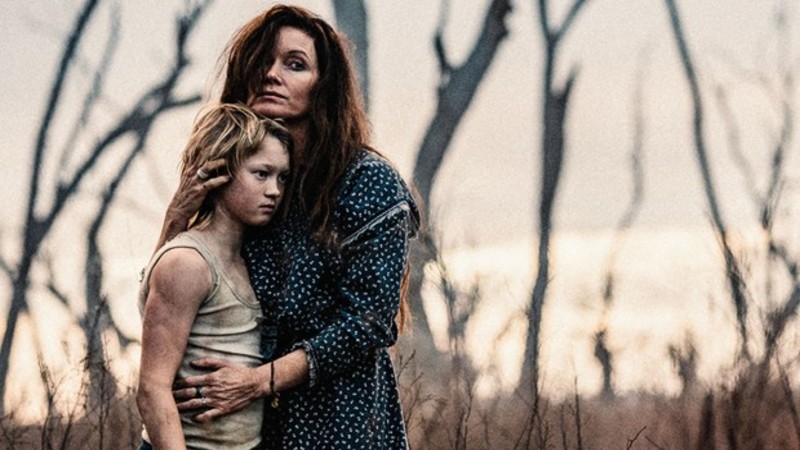QUICK SNAP: LIVE FROM TALLINN
Django Unchained goes down under in the well-meaning but ultimately misguided The Flood, a cartoonish buffet of overwrought outback violence. While making huge leaps in terms of representation — putting aboriginal people front and centre in a story uncovering the systemic racism of post-WW2 Australian society — the film’s juggling of various tones can’t cohere into a meaningful revenge story.
The Flood starts by telling us the great betrayal of aboriginal people after the Second World War. Despite being told that they would receive equal rights after fighting for their country, they find that very little has changed. This is stressed in an early scene when Waru Banganha (Shaka Cook) is refused service in a pub when he comes back from the war.
Meanwhile his wife Jarah (Alexis Lane) is ripped from her daughters Maggie (Dalaria Williams) and Binda (Simone Landers) by the hands of the brutal and savage whites, who barely see their black compatriots as human. They are headed up by a brutal preacher and his three large sons, who basically see these woman as an extension of their property. But when Waru rushes to save his daughters, killing one of the sons in the process, it triggers a feature-length chase that recalls classic Westerns as well as the acidic work of Quentin Tarantino.
All manner of transgressive human behaviour is here, including gang rape, torture and mass murder, first shot in a deliberately jokey style before often looping back on itself and stressing the mental and physical consequences of such actions. But trying to have it both ways is an incredibly difficult tightrope to walk, something The Flood simply can’t pull off.
It does look amazing. Shot in the tropical Kangaroo Valley, it creates an unusual type of ‘rainforest Western’ that makes full use of the gorgeous and green landscape — much of it destroyed by the bushfires this year. Yet key components of the Western, such as the horse chase and the shootout, are shot in a confusing fashion, robbing the viewer of the genre’s keenest pleasures.
In fact, director Victoria Wharfe McIntyre uses a full array of cinematic techniques that distract us from the story. The film is awash in flashbacks, filter-changes, screen-wipes, ahistorical musical choices and moments shot and reshot from different angles. While showing flair for staging certain tense scenes which do evoke the best of Tarantino, the film misses the same sense of moral righteousness; muddying its message through a surfeit of style just when it should be focusing on a clarity of purpose.
Responses may differ in Australia, which has been crying out for a film of this type that uses pop culture signifiers to criticise its racist history and start some difficult conversations; yet the mixed approach to the cycles and consequences of violence lacks a proper thesis for people to really work with. Entertaining in certain moments, and displaying obvious talent from debut director McIntyre, it’s a shame this powerful story cannot get the powerful telling it deserves.
The Flood plays as part of the First Feature competition at Tallinn Black Nights Film Festival, running from 13th to 29th November.









